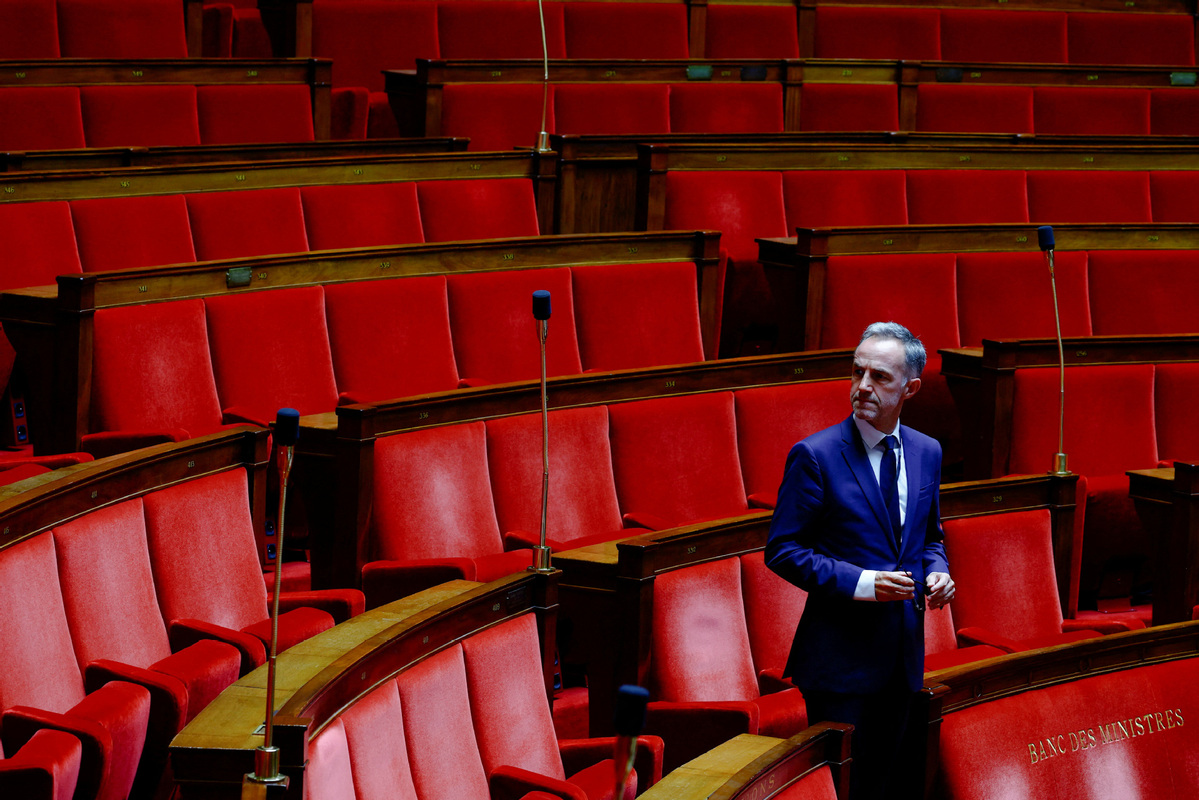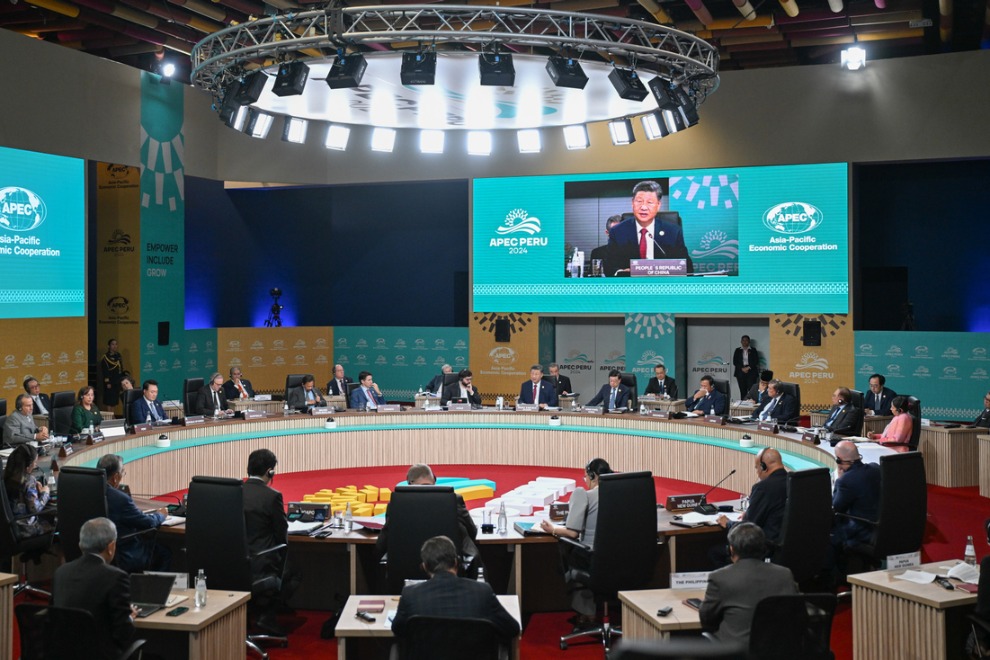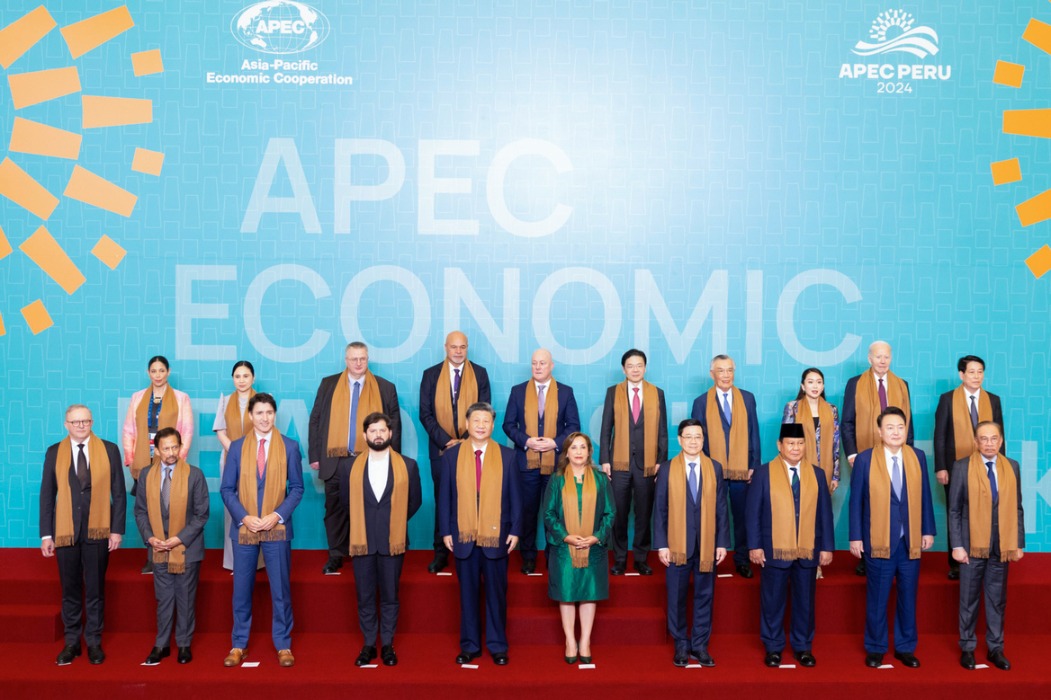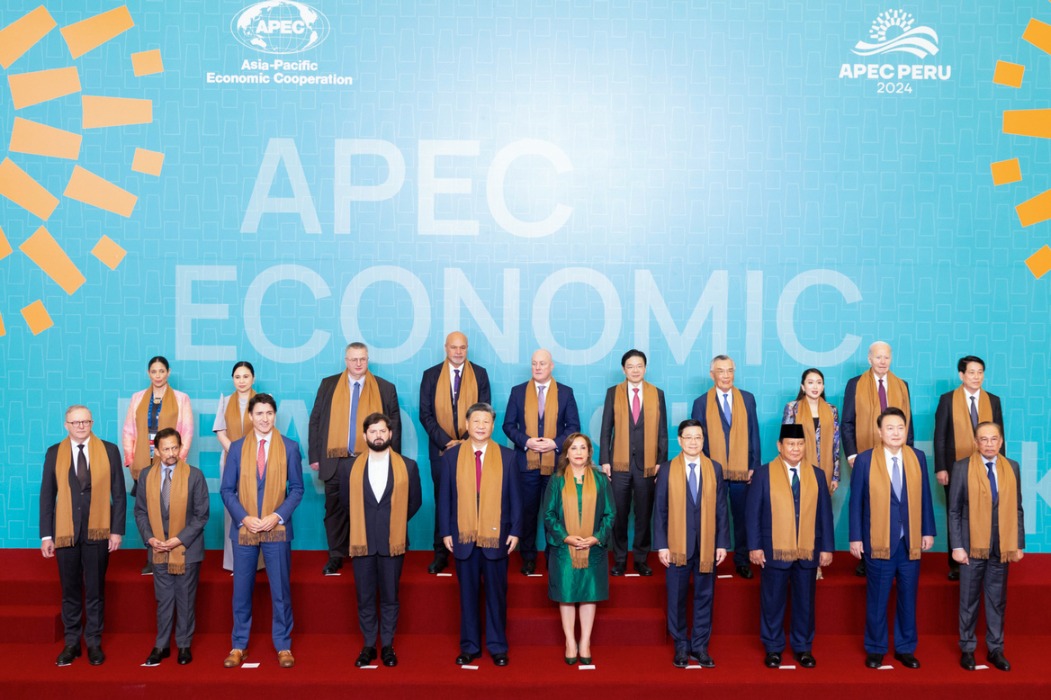Opponents of France's far-right collude to try to deny victory for RN
By Mohammad Arif Ullah in Paris | chinadaily.com.cn | Updated: 2024-07-04 03:37

Ahead of Sunday's high-stakes election, France's leftist New Popular Front, or NFP, alliance and centrist parties have withdrawn more than 200 candidates from the July 7 second-round ballot in a coordinated effort to prevent the far-right National Rally, or RN, party from seizing power.
President Emmanuel Macron's unexpected decision to dissolve the National Assembly after the European elections on June 9 has dramatically reshaped France's political landscape. The first round of the snap legislative election on June 30 marked a significant setback for Macron's 'Together' coalition.
Voters are currently selecting representatives for the 577 electoral districts of France's National Assembly and need 289 seats for an absolute majority.
The first round of the election revealed a notable shift in voter preferences, with Macron's coalition trailing its two main rivals. The far-right RN and the leftist NFP have emerged as dominant forces, potentially placing macron's coalition in third place in terms of parliamentary seats.
In response to the first round results, there have been widespread calls from all parties for candidates to be withdrawn to ensure a only one rival in each ward to the RN candidate.
According to the French daily newspaper Le Monde, a combined total of 221 candidates from various parties withdrew from the election before the crucial deadline on Tuesday at 6 pm. The strategic move aims to unite support behind the remaining candidates who have the strongest prospects of defeating Marine Le Pen's nationalist party.
The current situation signifies a profound shift in France's political dynamics. Macron's party, which held an absolute majority for five years and a relative majority for two, now faces the prospect of having significantly reduced influence.
The composition of the next government, to be formed after the second round of voting on Sunday, is expected to diverge notably from previous administrations.
Political scientist Florent Gougou, speaking to Le Monde on July 1, noted: "President Macron's coalition has shown significant improvement in the first round of the legislative election compared to their performance in the European elections."
This observation suggests a potential resurgence of support for the presidential camp, despite earlier setbacks.
Electoral map redrawn
Up to now, approximately 130 candidates from the left-wing NFP out of the 446 who were qualified to take part in the second round, and 81 candidates from Macron's camp, out of 319 who were qualified, have withdrawn from the second round.
Official figures will be provided once the data has been centralized by France's Interior Ministry.
These large-scale withdrawals have dramatically reshaped the electoral map, reducing the number of three-way contests from 306 to just 94 and increasing the number of head-to-head duels from 190 to 405.
On Tuesday, RN leader Le Pen stated that if her party narrowly missed securing an absolute majority, it would seek allies to assist it in forming a government.
Mathieu Gallard, director of research at Ipsos France, offered a revised assessment of RN's electoral prospects in an interview with Le Figaro on July 3, stating: "An absolute majority for the RN now seems much less credible after the first-round election."
On July 3, France's Prime Minister Gabriel Attal clarified his stance on political alliances in an interview with France Inter radio.
He said: "I want to be very clear: withdrawal does not mean alliance. There will never be an alliance with the hard left France Unbowed party."
Dorian Dreuil, a political scientist and associate expert at the Fondation Jean-Jaures, appeared on French TV Franceinfo on Tuesday evening to discuss the significant changes in the electoral landscape following the widespread withdrawals.
He said: "It was the unknown element that we had been waiting for since Sunday evening, because it changes the face of the projections."
For him, the withdrawals could perhaps "prevent the RN party from having an absolute majority".
























